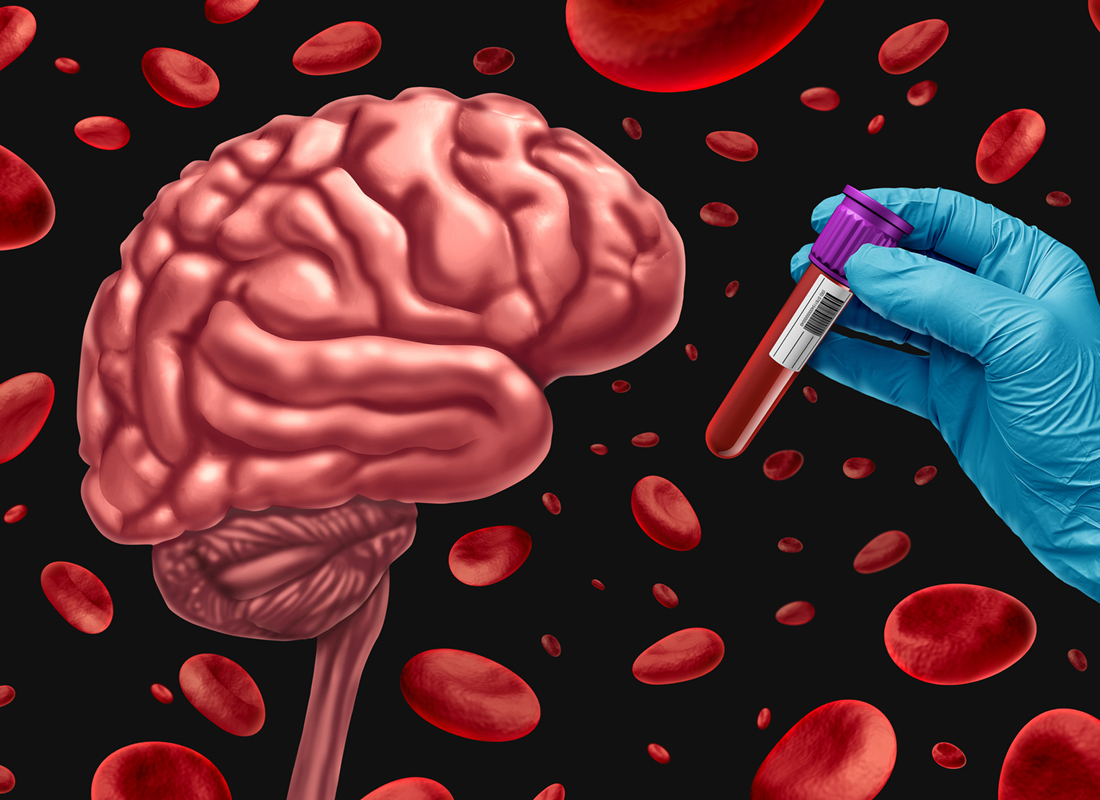Expert Q&A: A Promising Future for Alzheimer’s Blood Tests
Alison Green, PhD, head of laboratory sciences at Scottish Brain Sciences, discusses recent developments in AD blood tests

There is increasing evidence that blood-based Alzheimer’s disease (AD) tests have the potential for early diagnosis, however there is little information on how these tests perform in the real world. The Scottish Brain Sciences (SBS) laboratory at the University of St Andrews has partnered with Roche Diagnostics to assess the performance of blood tests for AD. The lab aims to determine, through the IONA Longitudinal Cohort Study, how the phosphorylated tau (p-tau) biomarker performs as a predictor of AD, among other key questions. Alison Green, PhD, head of laboratory sciences at the SBS lab, discusses recent developments in AD blood tests and what their future could hold.
Q: What are some key recent developments in Alzheimer’s blood tests?
A: The most recent is the increasing evidence that these blood-based biomarkers, which are based primarily on p-tau, are quite useful for detecting the very earliest changes of AD, such as the deposition of beta-amyloid. The next steps are trying to work out how they can be used, moving them from research cohorts into clinical practice, and assessing how they’re going to function in a clinical setting and what they actually mean. The current evidence is that most people with early evidence of beta-amyloid will progress at some point, but this is in research settings. In the clinical setting—or real world—this is where the evaluations of these tests need to happen now.
Q: Which developments do you find most exciting and why?
A: I find the whole thing very exciting, because when I first started getting involved in biomarkers and AD when doing my PhD about 20 years ago, we were looking at cerebrospinal fluid (CSF) tests. They were the cutting edge at the time, but, particularly in the United Kingdom, they weren’t accepted into clinical practice because there weren’t therapeutic interventions. So, people thought, “Well, why identify something that you can’t do anything about? It’s not really very fair.” But now that there are therapeutic agents available that can potentially slow the disease down, there seems to be a point to early detection. I never thought 20 years ago that we would ever get a blood test. The evidence coming out that it is a reliable test is one of the most major advances in biomarkers for AD that there have been over the last 10 to 15 years.
Q: What challenges remain to be overcome with these tests?
A: The challenges are around how are they going to be used. There are two key groups who may use these tests. There are people who go to their primary care provider, saying, “I might have problems with my memory, I’m worried I’ve got Alzheimer’s disease.” Then you’ve got another population going to memory clinics who clearly have a problem. The tests may perform differently in those two different settings.
One of the benefits of these tests may be to exclude AD in the population going to their primary care physician, because the doctor can order a blood test and simple cognitive test. If both of those come out as normal, then it’s very unlikely that the patient has AD, and therefore, you can reassure people. That’s going to be a crucial role for these biomarkers.
I think that it’s going to be easier in the other group, because these are very good as diagnostic tests and you’re starting with people who have a high likelihood of AD, because they’re in a memory clinic. So, I think that these tests will perform, diagnostically, much better in that group. How they perform diagnostically and in a situation in primary care where there’s a lower prevalence of AD, we’re unsure. This is why we’re doing the Scottish Brain Sciences study, asking for participants to enter the IONA longitudinal cohort, where we’re monitoring a large number of people who are cognitively well and are above the age of 50.
There will be a very small percentage of those patients who may have early signs of cognitive problems. Hopefully, we’ll be able to distinguish between those who may have early signs of AD and those going through normal cognitive aging. It’s that second group that needs the most rigorous assessment, because you don’t want to end up with a population of people who are very worried or being identified as having AD then going on to therapeutic agents that currently have some risk. You only want people who are really going to benefit from therapy to be entered into clinical trials.
Q: Though these tests aren’t in regular clinical use yet, what will be important considerations for labs that want to add Alzheimer’s blood testing to their menus, once such tests are approved?
A: In the UK, there is one center that does CSF testing. [Blood testing] has not been accepted. Most labs in the UK have no experience of dealing with these biomarkers. Whilst technically they may be able to do them, I think they’ll be very cautious because they won’t know what the tests really mean.
Until we really know what the test results absolutely mean in various circumstances, labs may find them difficult to interpret. My aim is to try and establish the lab and Scottish Brain Sciences within Scotland so that we know how to interpret the results and can help [when AD blood testing is used in general clinical practice]. That’s why we’re doing it in a specialized center with a cohort of patients.
Want more insights on blood-based Alzheimer’s tests? See our Q&A with Andreas Jeromin, PhD, chief scientific officer at ALZPath.
Subscribe to Clinical Diagnostics Insider to view
Start a Free Trial for immediate access to this article